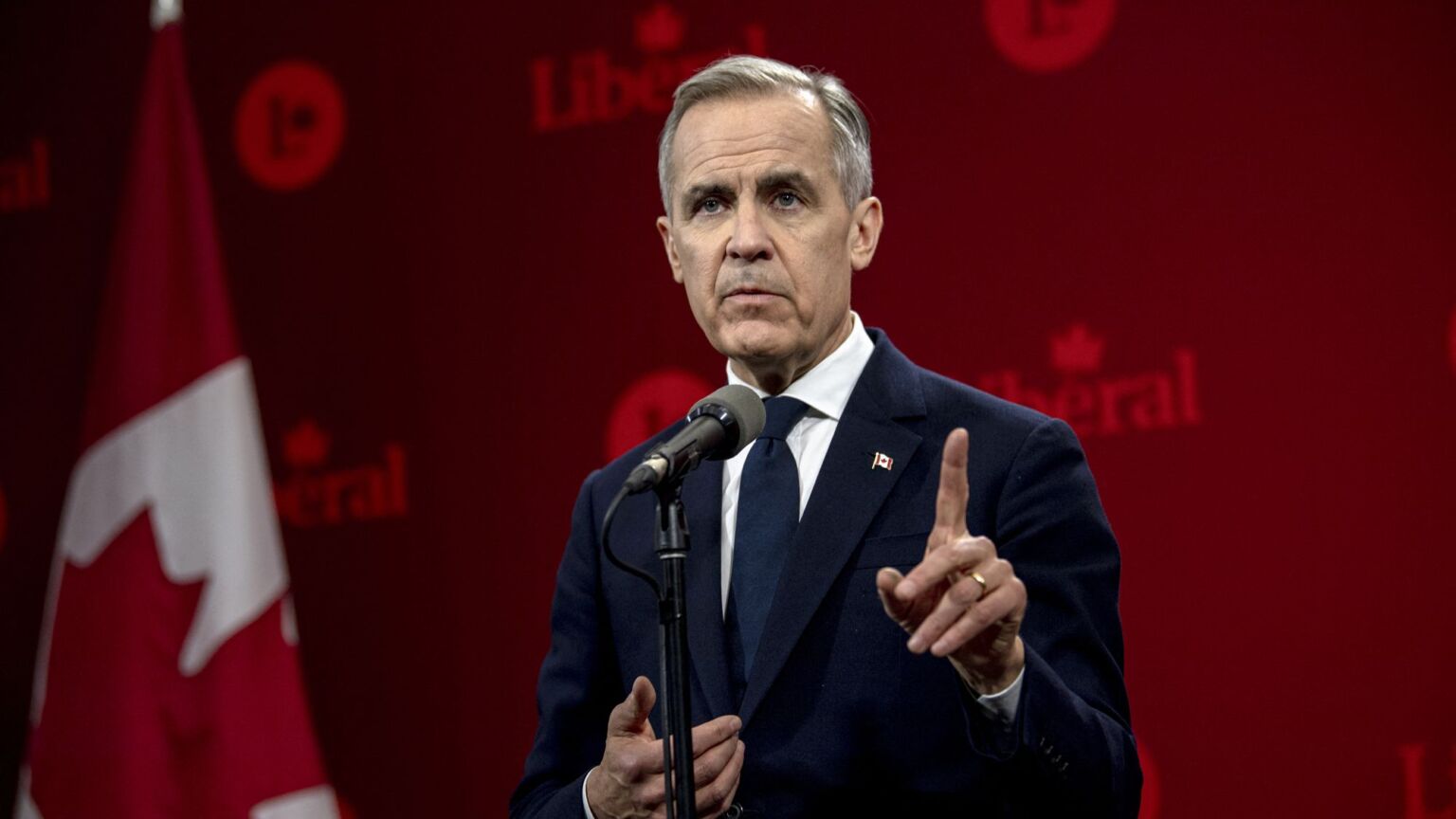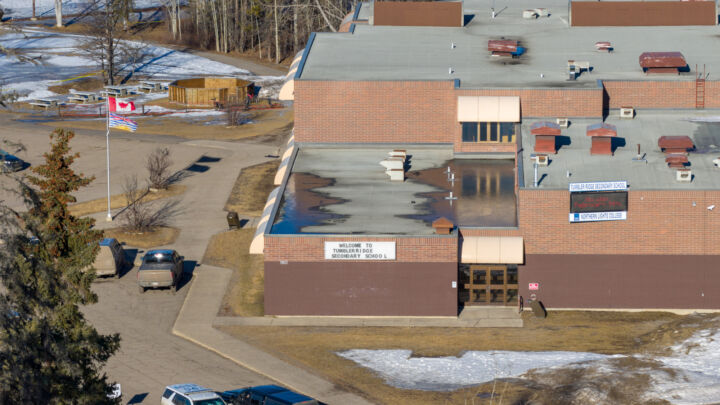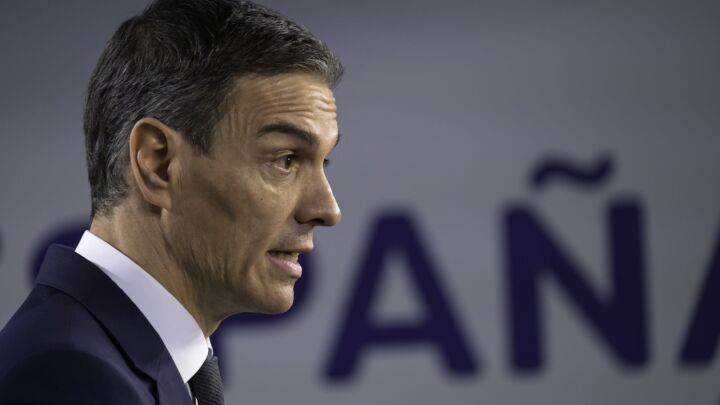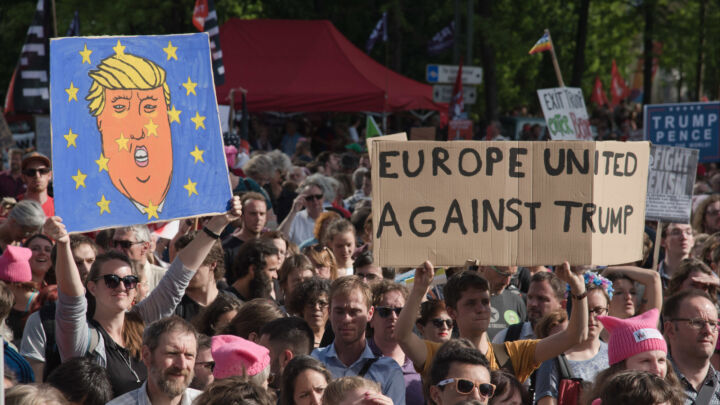Mark Carney could tear Canada apart
New separatist movements threaten to rain on the Liberals’ parade.

Want unlimited, ad-free access? Become a spiked supporter.
In an election that seemed all but guaranteed to land Pierre Poilievre’s Conservatives in government, Canada instead re-elected Mark Carney’s Liberal Party for another four years. Carney, former governor of the Bank of England, first became Canadian prime minister in March, taking over from the scandal-mired Justin Trudeau. The increasingly unpopular Liberals were set to be overthrown by the populist-leaning Poilievre, until US president Donald Trump’s threats to annex the country. This derailed the national discourse and caused liberal-left voters to rally behind Carney.
The Liberals’ victory, however, was extremely narrow, and their fourth term in government is set to be a rough ride. For starters, Carney will have to form a minority government. It will also have to contend with the fact that Poilievre’s Conservatives made significant gains among younger voters. For those aged between 18 and 34, support for the Conservatives outpaced Liberal support by 44 per cent to 31 per cent. Young Canadians remained impervious to Carney’s anti-Trump appeals – only 18 per cent of 18- to 29-year-olds were worried about Trump, compared with 45 per cent of voters over 60.
The youth were not the only group the Liberals failed to win over. In Western Canada, Trump’s threat to make Canada the 51st state provoked little concern, and Alberta and Saskatchewan remained Conservative strongholds. In fact, voters in these provinces were far less fearful of Trump than they were of Carney’s green agenda.
The Trudeau government – in power since 2015 – had already done its best to alienate the Canadian West with its unpopular federal Greenhouse Gas Pollution Pricing Act 2018, more commonly referred to as the carbon tax. As the biggest oil-producing provinces in the country, Alberta and Saskatchewan were most affected by this. Although Carney scrapped the carbon tax ahead of the election, he has shown every indication that he intends to continue with every other aspect of Trudeau’s Net Zero agenda. After all, in 2021, Carney said he believed that half of the world’s oil reserves need to stay in the ground.
Ploughing on with Net Zero is only likely to worsen tensions between the Western provinces – Alberta, Saskatchewan, British Columbia and Manitoba – and what is called ‘middle Canada’ – Ontario and Quebec. A similar divide emerged in the 1970s, when the slogan ‘let the eastern bastards freeze in the dark’ was heard across the energy-producing prairies.
In fact, Western Canada has long been the natural home of Canadian populism. From the Louis Riel rebellions in Manitoba in the 19th century to the forming of the socialist-agrarian Co-Operative Commonwealth Federation in Calgary in 1932, the West has always proved rebellious. More recently, the Reform Party of Canada tapped into this sense of disenchantment in the 1980s and 1990s. Its leader, Preston Manning, adopted the slogan ‘the West wants in’. Later, the Maverick or ‘Wexit’ party, founded in 2020, advocated for the independence of every province and territory west of Ontario.
As with all populist movements, there is a strong class element to ‘Western alienation’, as it’s often called in Canada. As one Edmonton columnist complained, Liberal MPs from the Canadian West ‘want their Ontario and Quebec colleagues to know they are embarrassed by Alberta culture and are themselves as “progressive” as the Liberals from “sophisticated” parts of Canada’. This sense of being looked down upon is common across the prairies. According to one poll, only a quarter of residents in both Alberta and Saskatchewan feel their province is respected by the rest of the country. This is half the level of the national average (52 per cent) and well behind Ontario (66 per cent). Even in Quebec, with its history of separatist activism, 46 per cent feel respected on a national level.
There are indications that the anger felt in the Western provinces will only continue to grow. An Angus Reid poll published last month found that nearly a third of those in Alberta and Saskatchewan said they’d like to become independent if the Liberals form the next government. That’s roughly the same as in Quebec. As Preston Manning warned in a Globe and Mail op-ed just before the election, ‘large numbers of Westerners simply will not stand for another four years of Liberal government, no matter who leads it… a vote for the Carney Liberals is a vote for Western secession – a vote for the breakup of Canada as we know it’.
In Alberta, an independence movement has been rapidly picking up steam. Alberta premier Danielle Smith, who leads the United Conservative Party, has entered into trade talks with the US and has even visited Trump at his Mar-a-Lago resort in Florida. She has warned that if Alberta’s demands to repeal Trudeau-era environmental laws are not met by the new prime minister within six months of the election, there could be a ‘national unity crisis’. Her concerns have been echoed by Scott Moe, the Saskatchewan premier.
An independence referendum could now seriously be on the cards. Last month, Smith introduced legislation that would make it easier to trigger a referendum, lowering the number of required signatures by hundreds of thousands. The Alberta Prosperity Project, a group that is planning to petition for a sovereignty referendum, is confident it can get enough people registered online to meet the new threshold. Meanwhile, Saskatchewan already has a law on the books allowing citizens to vote on issues of public concern when 15 per cent of the electorate have signed a petition.
The problem isn’t just excessive environmental rules, strangling the Western province’s main source of wealth. It’s also that the Liberals have weakened the idea of Canada as a nation, loosening the bonds that keep the disparate provinces together. In the past, there was a connection to the original Loyalists who left the United States out of loyalty to the crown during the American Revolution. Canada remained an outpost of the British Empire, and even French-Canadians in Quebec were generally happy to live in such a nation. The many immigrants from Europe during the 20th century integrated into this society relatively easily.
Today, nearly a quarter of Canadians were born elsewhere. Many of these immigrants have also integrated successfully into their local areas, but Trudeau’s hollow messaging that ‘diversity is our strength’ and his constant apologies for Canada’s past has inevitably weakened the bonds between Canadians. The Liberals have done more to undermine the unity of the country than any wayward provinces could do.
As any prairie farmer will say, you reap what you sow. The centrifugal forces in Canada threaten to break apart this fragile nation. The Carney government will face a huge challenge just keeping separatism at bay. As one United Conservative Party organiser in Alberta put it, ‘hockey and nostalgia’ won’t keep Canada together forever.
Kevin Yuill is emeritus professor of history at the University of Sunderland and CEO of Humanists Against Assisted Suicide.
You’ve hit your monthly free article limit.
Support spiked and get unlimited access.
Support spiked and get unlimited access
spiked is funded by readers like you. Only 0.1% of regular readers currently support us. If just 1% did, we could grow our team and step up the fight for free speech and democracy.
Become a spiked supporter and enjoy unlimited, ad-free access, bonus content and exclusive events – while helping to keep independent journalism alive.
Monthly support makes the biggest difference. Thank you.










Comments
Want to join the conversation?
Only spiked supporters and patrons, who donate regularly to us, can comment on our articles.